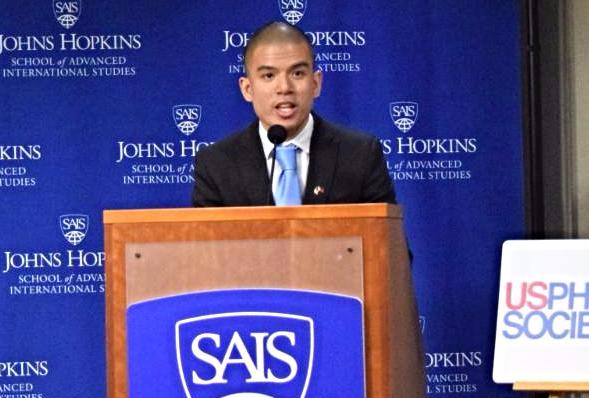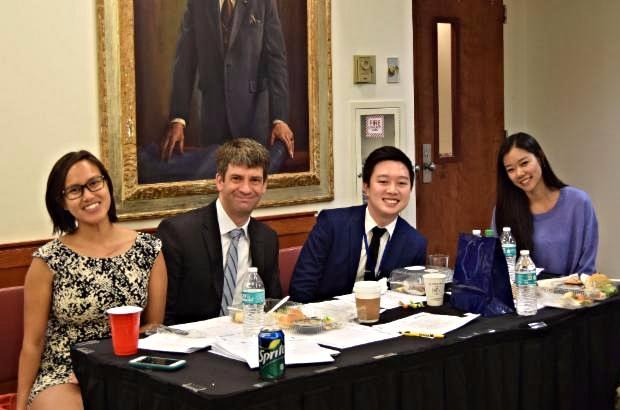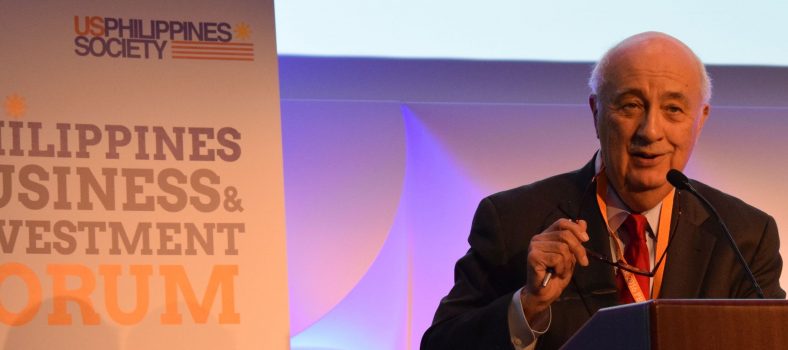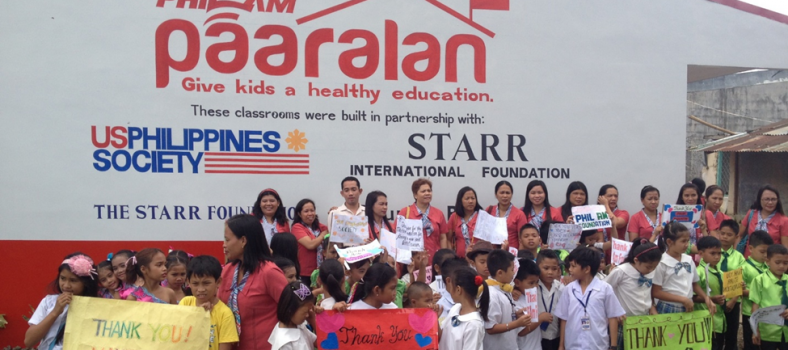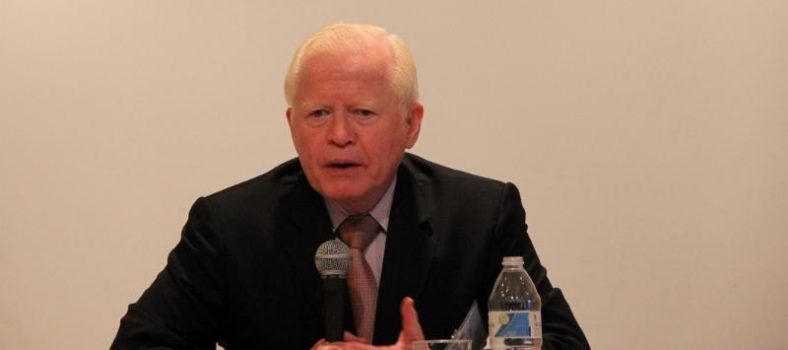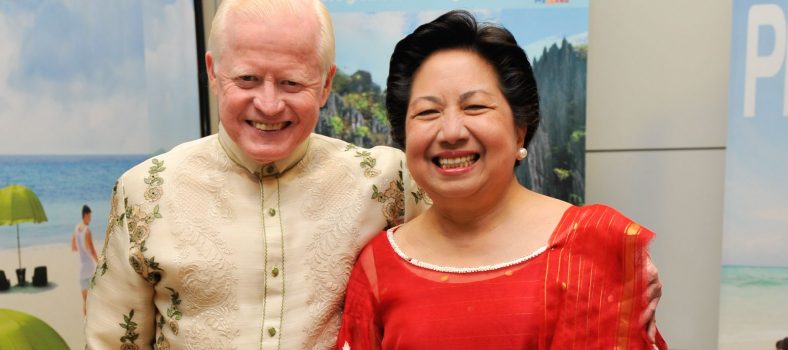Philippines 2016: Governance, Growth, Development and Security
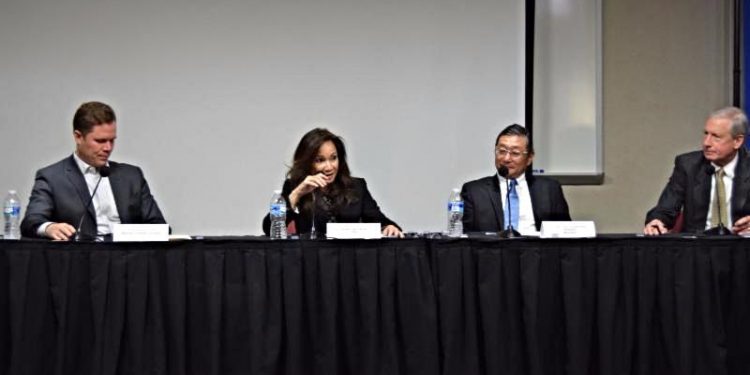
WASHINGTON, D.C.- At the April 28 symposium “Philippines 2016: Governance, Growth, Development and Security” leading officials and analysts from the U.S. and the Philippines reflected on initiatives launched under President Aquino as he concludes his six-year term. Panelists highlighted gains from reforms and offered proposals for sustainable growth, poverty reduction and improved security as priorities of the next administration.
Featured keynote speakers Ambassador Jose L. Cuisia, Jr. and former Senator Richard G. Lugar presented perspectives as the Philippines prepares for a political transition. The conference was organized in cooperation with the Johns Hopkins SAIS Filipino student community, Johns Hopkins Southeast Asia Studies Program, and the Philippine Embassy.
Under President Aquino, the Philippines has become one of the fastest growing economies in Asia and achieved progress on an anti-corruption and good governance agenda. The regional security environment and conflict in the southern Philippines present challenges. The US remains a key economic partner and strategic ally in the face of changing regional dynamics. U.S. development partners credit the Philippines’ pioneering efforts in tackling anti-corruption and developing inclusive growth initiatives as a means to reduce poverty, according to panelists.
Ambassador Cuisia Sets the Scene
Ambassador Cuisia opened the conference pointing to an invigorated partnership based on shared economic prosperity and a rules-based approach towards peaceful resolution of territorial claims disputes in the South China Sea. His keynote address also referred to broader cooperation on containing ISIS terrorist threats. He cited the vital role of cultural and educational diplomacy through people to people linkages in sustaining bilateral ties.
Aquino’s Priorities on Good Governance and Anti-Corruption
During the panel on Governance, Growth and Development, Motoo Konishi, former World Bank Country Director for the Philippines emphasized the success of the Aquino administration in reducing corruption and improving governance, as a precondition for economic growth. To sustain robust growth, Konishi underscored the importance of building resilience to the effects of climate change and environmental disasters that threaten crops and livelihood of the most vulnerable. A third component to eradicating extreme poverty is peace and security. The Aquino Administration has actively pursued these three objectives, according to Konishi.
“Fighting poverty means that you have to know where the poor live, and your investments need to be targeted to those people. Fast growth doesn’t eliminate poverty, you have to choose your policies carefully,” Konishi said. The Aquino Administration focused on pro-poor policies. Konishi added that the Philippine experience will be a highlight of the World Bank’s flagship World Development Report this year. The World Bank considers the Philippines’ Conditional Cash Transfer program the second largest and best targeted social safety net program in the world.
Consolidation of Reforms
“The Filipino people are looking to more changes and to the continuation of reforms that the Aquino Administration started,” USAID’s Gloria Steele stressed, highlighting the accomplishments of the Aquino Administration in competitiveness, transparency, fighting corruption, tourism, infrastructure, education, and health. Growth needs to be geographically dispersed throughout the country. Steele cited ongoing needs to improve airport infrastructure and energy regulations as components of growth that should be the focus of the next administration.
Matthew Bohn of the Millennium Challenge Corporation lauded the first compact with the Philippines, which supported poverty reduction, inclusive growth, and the reduction of corruption, as being one of MCC’s best compacts. He cited dramatic improvement toward these goals through the community-led development KALAHI-CIDSS projects that increased from 2700 to 4000 projects. Some $434 million was invested in 220 kilometers of roads. Third, the modernization of the tax administration improved broad-based tax revenue. He also expressed confidence the Philippines will be able to sustain its growth and development largely because of the groundwork that the Aquino Administration has set in place. “The Aquino Administration has successfully put down deep and important roots for creating the conditions for sustained economic growth,” Bohn said.

(L-R) Panelists: Ruth Wedgwood (SAIS), Patricio N. Abinales (University of Hawaii-Manoa), Zachary Abusa (National War College), and William Wise (moderator). Photo credit: Sasha Milentey
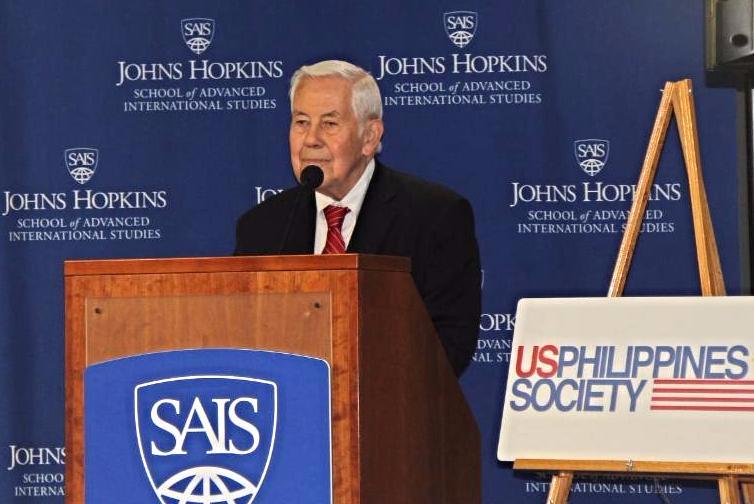
Former Senator Richard G. Lugar presents a case for strong affinity that withstands shifting political winds.
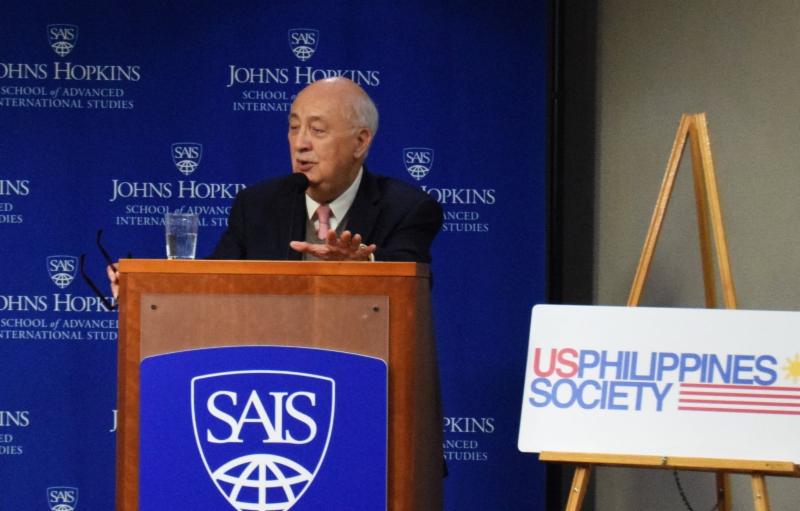
US-Philippines Society President Ambassador John F. Maisto delivers closing remarks.
- SAIS Filipino Graduate Student Lorenzo Piccio led the Filipino student community in co-sponsoring the symposium.
- SAIS Graduate Student Volunteers



